Riot Boyyy
A young writer discovers a long-lost letter from Kathleen Hanna, but meeting her in person doesn't go as planned.
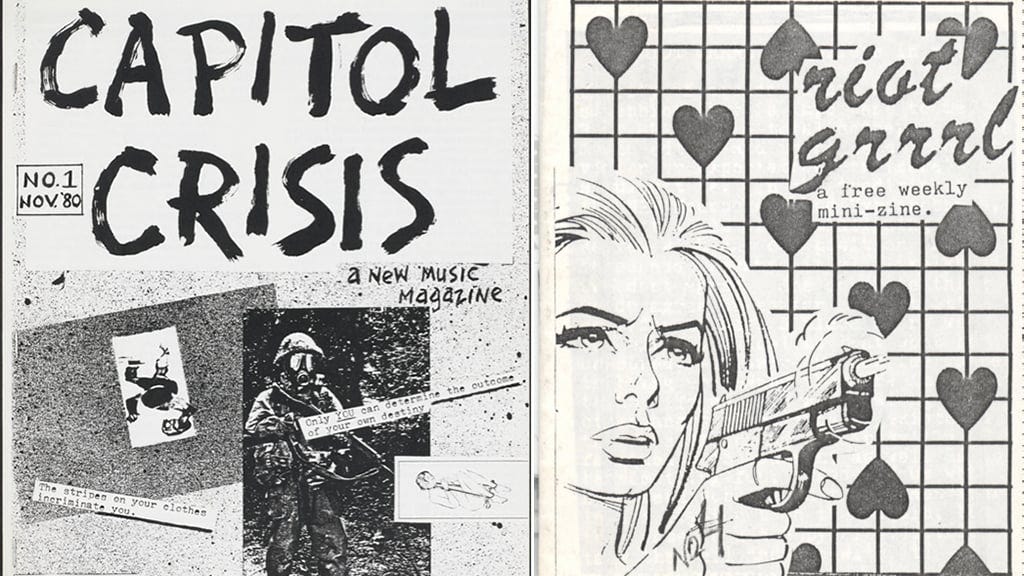
In 1991, I was living in Spokane, Washington and had started publishing my own chapbooks and setting up spoken word shows for the first time. I was heavily influenced by the DIY culture of record labels like K Records and magazines like Factsheet 5. I ordered poetry zines and chapbooks through the mail and wrote a few fan letters to people I admired.
After reading a review of a zine called The Most Beautiful Girl Is a Dead Girl by Maggie Fingers, I sent the author $3 and a copy of one of my chapbooks, called Beautiful Teenagers Unite. About two months later, Maggie mailed a response.
I had forgotten about her letter until recently, when I found it buried in a box of other personal letters from my early poetry days in the ’90s.
Here it is:
Maggie Fingers was Kathleen Hanna.
Soon after reading her letter, I went out to find the Kathleen Hanna/Slim Moon spoken word single that she mentions, Mean / Rock Star.
It took some work.
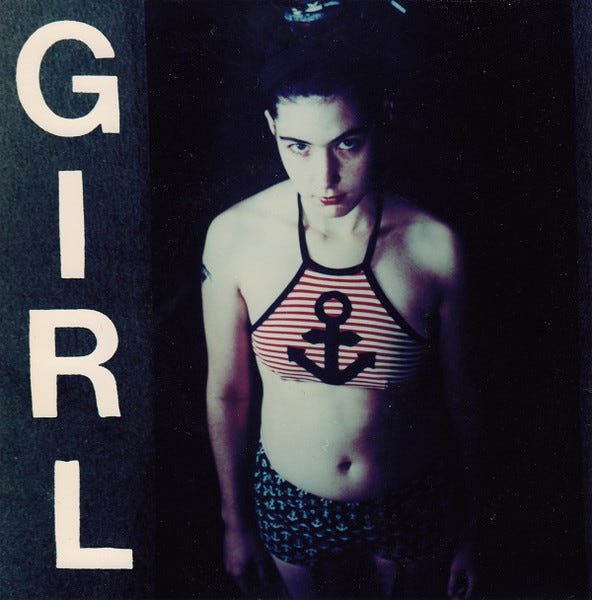
Along with the works of Seattle writer Steven Jesse Bernstein, performance artist Karen Finley, and the band Bongwater, this record became a source of inspiration for my own spoken word performances. There were several other singles released as part of the “Wordcore” series on Kill Rock Stars, including work by recent Pulitzer Prize finalist Stacey Levine and Exene Cervenka of the band X. Of course, Kill Rock Stars has become one of the world’s best independent labels since then (though not really specializing in spoken word poetry records, they do often put out comedy records).
My favorite part of the letter is the oh-by-the-way tone of her PS in the upper corner. “My band is called Bikini Kill.” I looked for their records as well, but it would be a couple of months before I’d find anything.
In the meantime, I had moved to Fort Smith, Arkansas, where I was pretty far removed from any kind of indie or punk scene. I ordered the first Bikini Kill cassette from the K Records catalog, alongside various records by other similar bands. I would then have to take the records to the Fort Smith Library and use their record players to record them onto cassettes that I could listen to anytime. I spent a decent amount of time at the library, with stacks of 7” singles from K, Teen Beat, Sarah Records, and Sub Pop. The Riot Grrrl movement was already in full swing, just months before grunge became a household word.
In the early summer of 1992, my Arkansas girlfriend and I did a road trip to the east coast, thinking we might move there. While in Washington D.C., we went to a show sponsored by Sassy Magazine with Heavens to Betsy, Bratmobile, and Lunachicks. We saw Joan Jett hanging out. She was talking to a bunch of young girls and was surprisingly tiny, smaller than many of the girls. It was one of my first-ever celebrity sightings.
Heavens to Betsy (with a pre-Sleater-Kinney Corin Tucker) weren’t very good. They seemed nervous and more out of tune inside the big warehouse setting. Bratmobile was more fun and self-assured. I bought one of their singles and talked with their singer, Allison Wolfe, for a little bit after their set. My girlfriend got jealous and said, “She doesn’t know how to sing.”
There was a big music explosion on the east coast at that time, especially around DC and Maryland. I went to a record store and bought a bunch of stuff put out by Simple Machines and Slumberland, two labels from that part of the country that were run primarily by indie-inspired women. This particular record store haul was especially memorable because I also bought cassettes of PJ Harvey’s Dry and Pavement’s Slanted and Enchanted, which we listened to nonstop in the car.
My girlfriend and I eventually decided that the east coast was too expensive and crowded and we ended up moving to Portland, Oregon in the summer of 1992. There was an energetic music scene with numerous clubs, both all-ages and over 21.
The X-Ray Café was one of the most vibrant venues, right on Burnside Street. Standing not far from the river and the bridge where most of the houseless people slept back then, it was an odd place for an all-ages club, considering that sex shops, strip clubs, and drug dealers were never far away. Bikini Kill was scheduled to play there one night, and we went to see them.
It was a balmy night and godheadsilo was opening up for them along with Portland band, The Frances Farmer Gals. It had been almost two years since I exchanged letters with Kathleen. I had sent a response to her letter after I moved to Arkansas but never did get a copy of the zine (and to this day I have never actually seen a copy). I thought it would be cool to say hi to her before their set and introduce myself. About twenty or so people were hanging out on the sidewalk and a couple of beat-up vans were being unloaded.
I knew that sometimes Kathleen wore wigs or disguised herself in different ways, but I spotted someone I thought was her. I walked up with my girlfriend and said, “Hey, are you Kathleen?”
She looked at me quickly and said, “No.”
Caught off guard, I said sorry and walked away. I looked around some more, hoping I’d get to meet her but didn’t see anyone else that looked like her.
Later that night, Bikini Kill stepped up on the X-Ray Café stage, surrounded by the club’s décor of velvet paintings and mannequin parts. The crowd was about half male and half female, with the majority of the females near the front, by the stage—just as Hanna had urged them to do. “All the girls to the front” became one of Riot Grrrl’s enduring calls to action.
I bopped my head and watched as the person I originally thought was Kathleen outside grabbed the mic and sang the first song. At first, I thought maybe it was one of her bandmates, Tobi Vail or Kathi Wilcox, doing vocals for one song, but as they started their second song, I figured out I’d been duped. It was Kathleen Hanna after all.
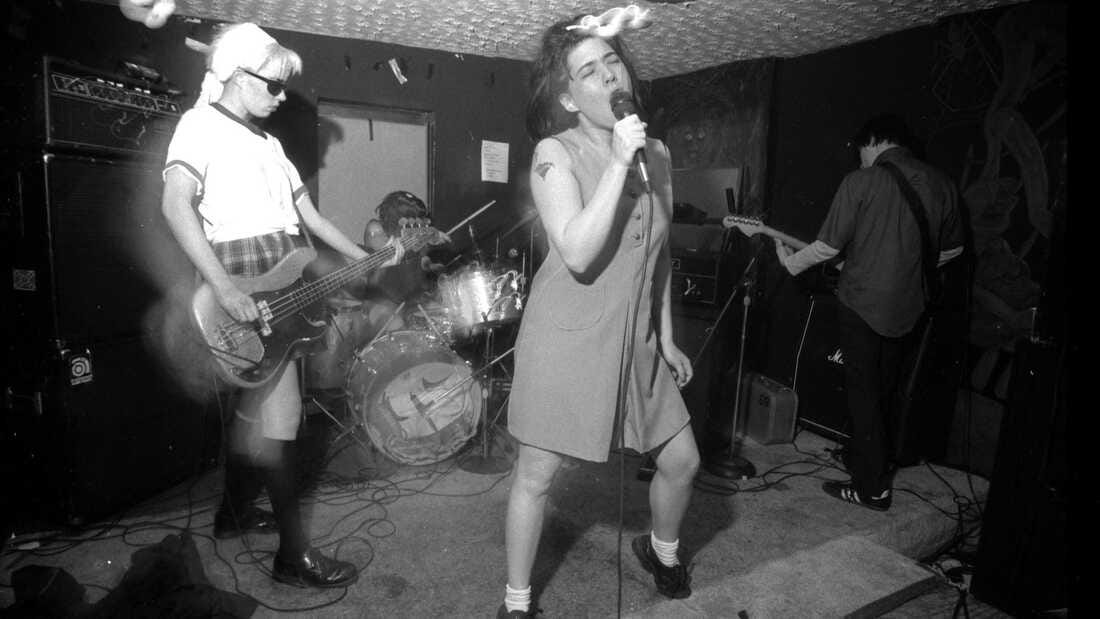
All night I felt embarrassed and bummed out about the whole situation. I thought maybe I’d try to talk to her afterward again, but I realized that wasn’t a great idea. She probably thought I was some dude trying to hit on her or something—at the least, I’m sure I came across as a smitten fanboy. It wasn’t uncommon for Riot Grrrl bands to ignore or alienate male fans. In a way, it was their way of payback for years of men belittling women in music. Indie boys and rock dudes in the ’90s deserved to be shunned by women in bands—a kind of justified reparation.
My girlfriend offered to talk to her after the show for me—she could tell I was a little crestfallen—but I feared she would have been rejected too. We went home feeling more and more jaded. We didn’t listen to their music much after that. I was hurt and felt my Riot Grrrl/Riot Boyyy window closing.
Around this same time, I became a “go-go dancer” for a Portland performance art/lip-synch band called God’s Favorite Pussy. They were four women who had elaborate costumes and performed sometimes in roller skates. Me and a couple of other young men would dress in “sexy” get-ups like cheerleader skirts and lingerie and objectify ourselves for the audience.
Still, I admired what Kathleen H/Maggie Fingers was able to accomplish with her art and her ideas. This one letter from her proves that she was once a normal young idealist striving for a voice and the power to influence people for the better. But she still owes me a book.
Kevin Sampsell is the publisher of Portland small press, Future Tense Books. His books include the memoir, A Common Pornography, the novel, This Is Between Us, and I Made an Accident: Collages and Poems. He co-curates the online collage gallery Sharp Hands with artist Cheryl Chudyk and occasional guest curators.
Note: A shorter, different version of this essay originally appeared on the website Jewcy.



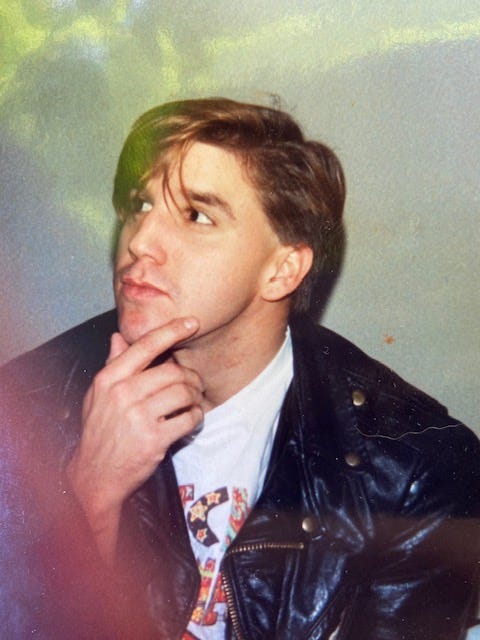
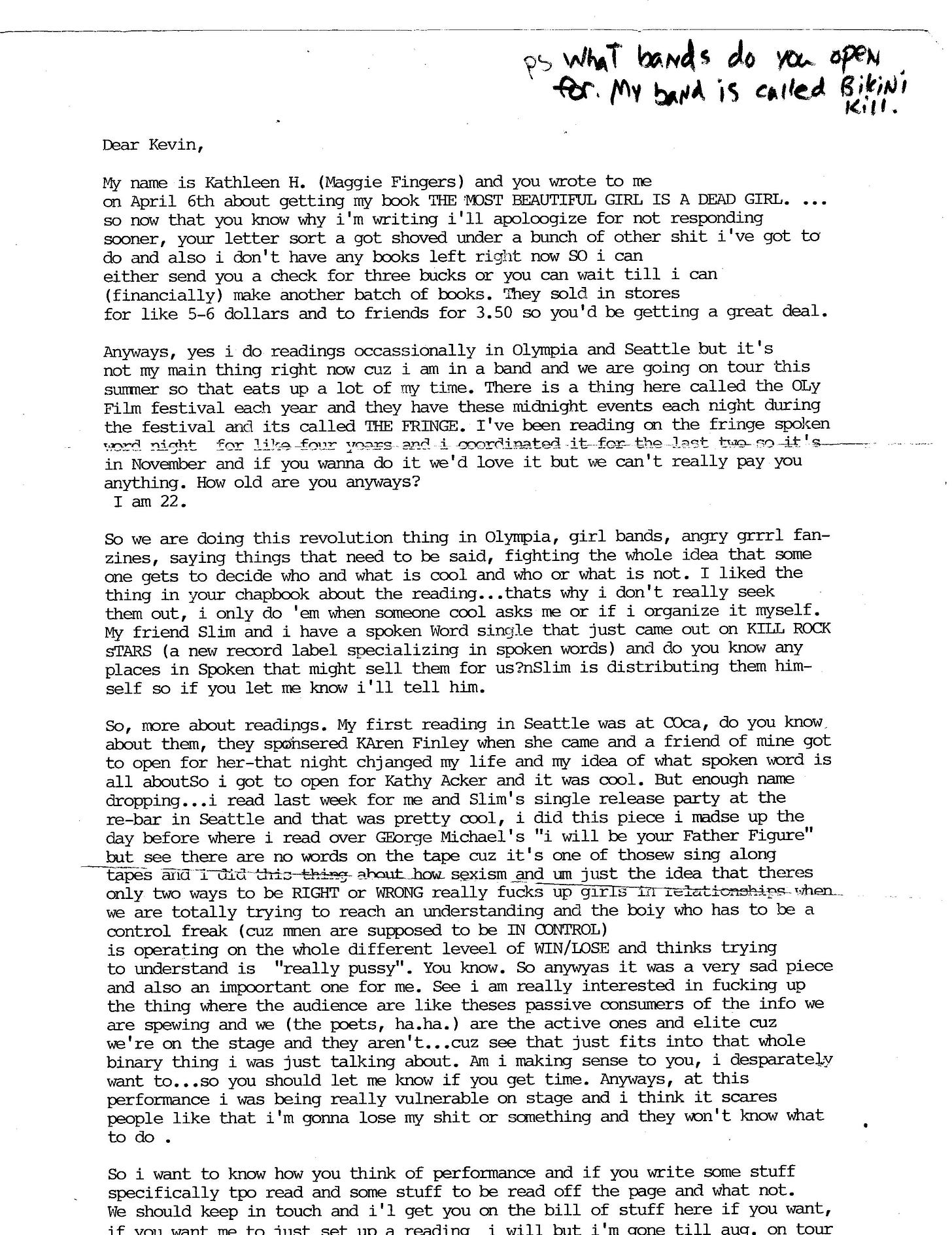
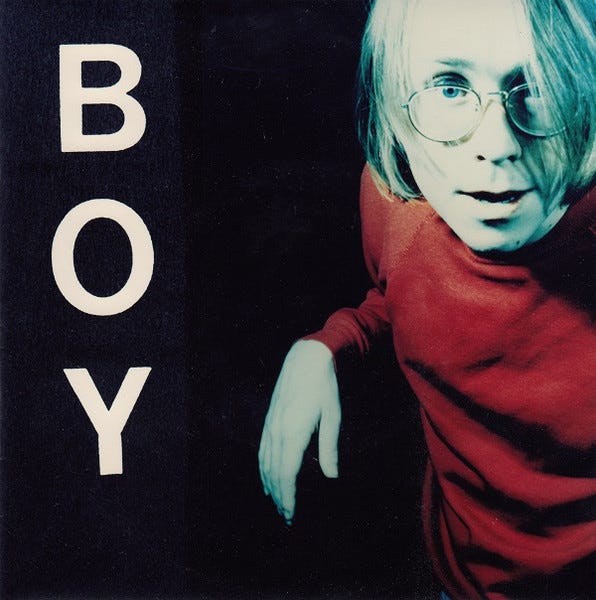

These 90's punk rock stories are precious, and only a very small swath of the population have the capability to write about it. Special times.
I was probably at this show. In the front of course. I remember watching some of your readings back then. I liked your work a lot. The x ray was my introduction to the rest of my life. A magical place.